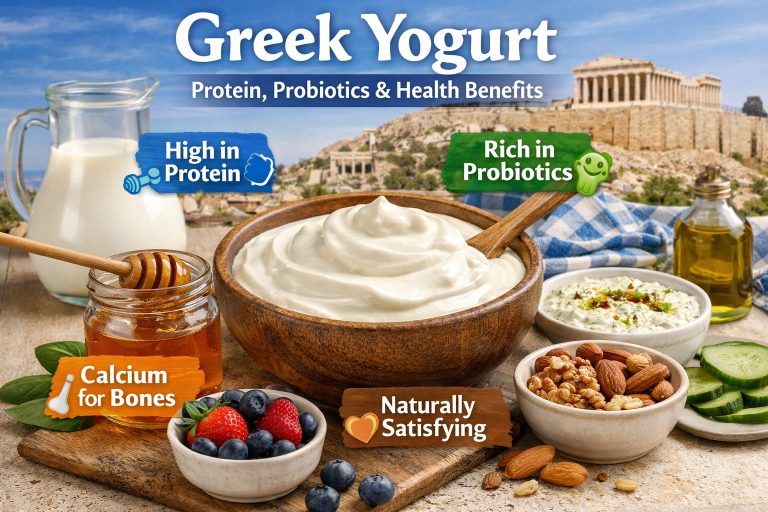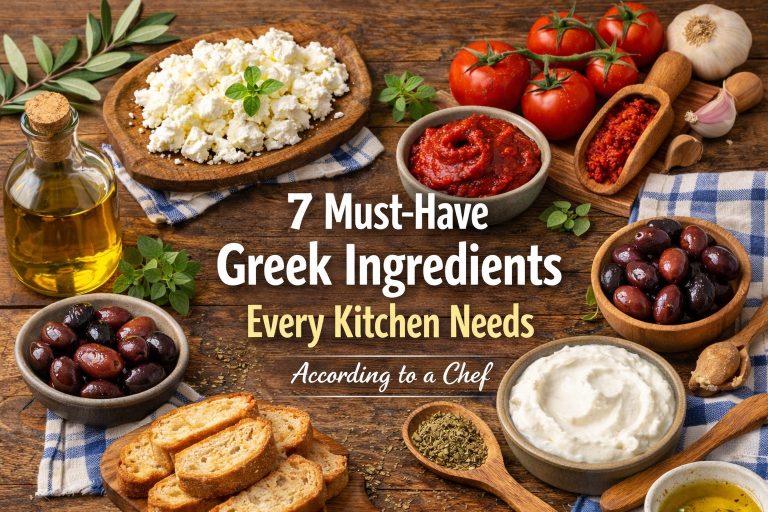
Greek kefir is a delightful variation of traditional kefir, combining the health benefits of fermented dairy with the creamy texture and tangy flavor that Greek yogurt is known for.
What is Greek Kefir?
Greek kefir is made from kefir grains, similar to regular kefir, but is strained to achieve a thicker, creamier consistency. This process produces a product that is rich in probiotics while maintaining the unique taste of kefir. Typically made from cow or goat milk, Greek kefir offers a delicious alternative to yogurt, making it a nutritious option for breakfast, snacks, or cooking.
The Straining Process
The straining process involves passing regular kefir through a fine mesh or cheesecloth, which removes whey and results in a thicker texture. This method not only enhances the creaminess but also concentrates the flavors and nutrients. The final product is thick enough to be used in various culinary applications, making it a versatile staple in many kitchens.
Nutritional Benefits
Greek kefir shares many health benefits with regular kefir, with some added advantages due to its thicker consistency:
- High in Protein: Greek kefir typically contains more protein than regular kefir, making it a filling choice that supports muscle repair and growth. A serving can provide a substantial amount of your daily protein needs, which is particularly beneficial for those following active lifestyles.
- Rich in Probiotics: Like all kefir, Greek kefir is loaded with beneficial bacteria that promote gut health and enhance digestion. These probiotics can help balance gut flora and may alleviate symptoms of gastrointestinal distress.
- Lower Sugar Content: The straining process reduces the sugar content, making Greek kefir a healthier choice for those monitoring their sugar intake. This aspect is particularly appealing to individuals watching their carbohydrate consumption.
- Vitamins and Minerals: It is an excellent source of calcium, vitamin B12, and magnesium, essential for bone health and energy metabolism. These nutrients play crucial roles in maintaining overall health and vitality.
- Healthy Fats: Depending on the type of milk used, Greek kefir can also be a source of healthy fats, which are important for hormone production, brain function, and nutrient absorption.
Health Benefits
- Digestive Health: The probiotics in Greek kefir help maintain a healthy gut microbiome, which can alleviate issues like bloating, constipation, and diarrhea. A balanced gut flora is essential for optimal digestion and nutrient absorption.
- Immune System Boost: Regular consumption can strengthen the immune system, helping to prevent illnesses. Probiotics have been shown to enhance the body’s immune response, making Greek kefir a smart choice during cold and flu season.
- Weight Management: The high protein content can promote satiety, making it easier to manage cravings and maintain a healthy weight. Including Greek kefir in your meals can help control hunger and reduce the likelihood of overeating.
- Bone Health: The calcium and vitamin K2 found in Greek kefir support bone density and strength. Regular consumption can be particularly beneficial for older adults at risk of osteoporosis.
- Skin Health: The probiotics and vitamins in Greek kefir may also contribute to healthier skin. Some studies suggest that gut health is closely linked to skin conditions, so consuming probiotic-rich foods can potentially improve skin clarity and reduce issues like acne.
How to Enjoy Greek Kefir
Greek kefir is incredibly versatile and can be enjoyed in various ways:
- Smoothies: Blend Greek kefir with fruits, spinach, and a bit of honey for a nutritious breakfast or snack. The creamy texture adds a delightful richness to smoothies, making them more satisfying.
- Dips and Dressings: Use it as a base for creamy dips or salad dressings, adding herbs and spices for flavor. A simple Greek kefir dip can be made by mixing it with garlic, lemon juice, and dill, perfect for fresh vegetables or pita chips.
- Baking: Substitute Greek kefir for yogurt or sour cream in recipes for baked goods. It can add moisture and a slight tang to muffins, pancakes, and cakes.
- Soups: Stir it into soups for a creamy texture and added tanginess. Greek kefir can enhance the flavor profile of both cold and hot soups.
- Parfaits: Layer Greek kefir with granola and fresh fruit for a delicious and visually appealing parfait. This makes for a perfect breakfast or dessert option.
- Frozen Treats: Use Greek kefir to make healthy frozen treats. Blend it with fruits and freeze it in molds for a refreshing snack.

Making Greek Kefir at Home
Making Greek kefir at home is a simple process that allows you to control the ingredients and fermentation time:
- Ingredients: You’ll need kefir grains, milk (whole or low-fat), and a fine mesh strainer or cheesecloth.
- Process:
- Combine kefir grains with milk in a jar and let it ferment at room temperature for 12-24 hours. The longer it ferments, the tangier it will become.
- Once fermented, strain the kefir through a fine mesh to remove the grains. You can use a spoon to gently press the grains to extract more liquid.
- To achieve the Greek texture, strain it further using a cheesecloth to eliminate excess whey. The longer you strain it, the thicker it will become.
- Store in the refrigerator and enjoy! The strained grains can be reused for your next batch.
Cultural Significance
Kefir has a rich history and cultural significance, particularly in the Caucasus region where it originated. Traditionally, kefir was made by placing grains in leather bags and allowing them to ferment naturally. The drink has been cherished for generations for its health benefits and is often considered a staple in many households.
In recent years, the popularity of kefir has spread worldwide, with many cultures adopting it into their diets. Greek kefir, in particular, has gained traction in health-conscious communities for its nutrient density and versatility.
Conclusion
Greek kefir is a creamy, nutritious superfood that combines the benefits of traditional kefir with a rich texture reminiscent of Greek yogurt. With its high protein content, probiotics, and versatility, Greek kefir is an excellent addition to a healthy diet. Whether you enjoy it on its own or incorporate it into recipes, this delightful fermented drink is sure to enhance your meals and promote overall well-being. Its cultural heritage, combined with modern health trends, makes Greek kefir a unique and valuable food choice. Give Greek kefir a try and discover its delicious benefits in your daily life.



